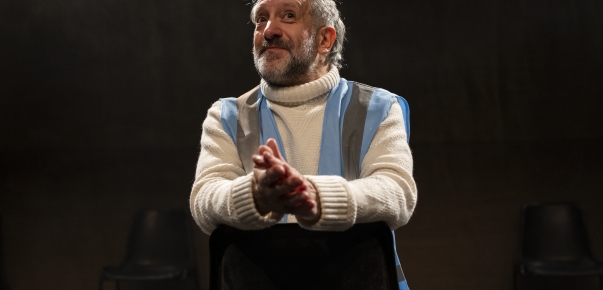Bristol Ferment: Tom Bailey of The Mechanical Animal Corporation talks about The Softening of MAO-A
20 Jul 2011I was asked by Lina B. Frank, Assistant Ferment Producer, to write a few words on why I’m making The Softening of MAO-A.
So…
My interest in approaching the genetics of behaviour (and, more broadly, evolutionary biology) within the theatre stems from a deep curiosity in the subject. I began to engage with scientific ideas because at university I researched into the ways that the science of climate change was communicated to the public. From this grew an interest in evolution and the esoteric discipline of natural history. Climate change is a melancholy business. But it makes you realise, if you take it seriously, just what human industry is destroying – in terms of the biological complexity of life on Earth. From this, and reading into the subject I became fascinated with how idiosyncratic, brilliant and fragile biological life is. My work is, I suppose, an artistic response within the mix of challenging alterations to organic life which are taking place in the 21st Century.
For me, one of these changes is our relationship with our own genomes. Both in the US and UK (but more in the former) there has been a rise of Direct to Consumer (or DTC as its known) genome sequencing. That is: you pay some money to a company that finds out what genes you’ve got. As an industry it’s at an early stage. For me, the possibility of knowing your own genome has huge implications for how we perceive ourselves, and of defining identity. We can find out, for instance, if we’re going to get Alzheimer’s, or whether our bodies are genetically predisposed to do one thing or another. Generally, this is part of the bigger eugenics picture of a) discovering the genome and its deficiencies; b) being able to engineer life once humans gain intellectual and commercial control of genes; and c) the general commercialisation of genetics industry. The seriously questionable practice of corporate patenting of plant, animal and human genes, by biotech and pharmaceutical industries, already takes place.
I wanted to make a piece of theatre that was, loosely, modelled on the DTC industry, in that the play claims to be delivering a genetic ‘product’ directly to its audience. From what I’ve come across, I’m not very interested in more conventional science plays. The few plays that do approach evolutionary themes (for instance, Timberlake Wertenbaker’s After Darwin) tend to look at the social evolution (as opposed to the biology of it), and God versus Darwin, which strikes me as an obsolete cultural debate. Science can make incredible discoveries, but it’s also a very obscure and sometimes destructive way of gathering knowledge. It’s a disciplined and highly sceptical method of asserting a framed fact about the material world. At the same time, science needs fictions and visions to define itself, its research aims, and to make hypothetical propositions. This is where I think art can critically engage with the scientific industry very fruitfully. I’m focussing on an area of science (the genetics of behaviour) which is at a very early stage of development. Scientists are quite good at mapping single genes to hereditary physical traits and diseases, but when it comes to linking behavioural traits to specific genes that’s an entirely different, and far more complex, ball game. I feel that that, with the lack of much firm evidence in the field, there’s scope to make a more powerful artistic scenario out of this.
It may seem odd that I’m exploring ideas of biology in the theatre. For me there is cross-over (metaphorically, at least) in that I see theatre as a space where we artistically explore living presence. Biology is the science of living presence. The Softening of MAO-A started out a while ago as a literary piece, more of a non-rational essay of thoughts in dramatic form on the page. In the absurdist approach, I draw a bit from Alfred Jarry and his idea of Pataphysics – the ‘science of imaginary solutions’. This was a literary form of taking scientific ideas and making absurd scenarios from the propositions they made about the world.
The work has gradually changed a lot, and is still very much unfinished. Hopefully Ferment will be helpful in this way. I’m lucky to be working with Vic Llewellyn, Edward Rapley, Matt Chilton and Caroline Hunt, who I’m sure will be helpful in developing the piece from the page.
-----------------------------------------------------------------------------------------------------------------
You can see The Softening of MAO-A, a work-in-progress performance, as part of the Ferment July Festival that starts tomorrow and runs until the 29th of July.
The Softening of MAO-A is showing in the Studio at the Bristol Old Vic at 7pm on the 28th of July.
Full listings and tickets here: http://www.bristololdvic.org.uk/ferment2011.html


